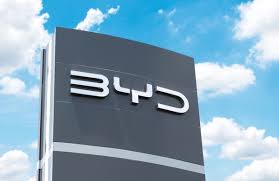
Brazilian authorities have suspended the construction of a new electric vehicle (EV) factory by Chinese automaker BYD in the northeastern state of Bahia after uncovering labor conditions described as akin to slavery. The incident underscores ongoing challenges faced by multinational companies navigating ethical and operational pitfalls while expanding into new markets.
Labor Abuses in Bahia
More than 160 workers employed by Jinjiang Construction Brazil, a subcontractor for the project, were rescued from deplorable living and working conditions, according to Brazil’s Public Labour Prosecutor’s Office (MPT). Workers were housed in overcrowded facilities in Camaçari city, where they slept on beds without mattresses and shared a single bathroom with over 30 individuals. Such conditions, combined with the withholding of passports and salaries, fit Brazil’s legal definition of slavery-like conditions, including forced labor and degrading treatment.
The factory, slated to begin operations by March 2025, was intended to be BYD's first EV manufacturing plant outside Asia. BYD has since severed ties with Jinjiang Construction Brazil and moved affected workers to hotels, asserting its commitment to compliance with Brazilian labor laws. The company stated that it had repeatedly demanded better conditions for subcontracted workers before the allegations surfaced.
Implications for BYD’s Expansion Strategy
The Bahia facility is part of BYD's larger strategy to cement its presence in Brazil, its largest overseas market. BYD initially entered Brazil in 2015 with a factory in São Paulo producing electric bus chassis. Last year, the automaker announced plans to invest 3 billion reais ($484.2 million) to build the Bahia plant, marking a significant milestone in its global expansion.
However, the labor scandal threatens to tarnish BYD’s reputation and disrupt its growth trajectory. As one of the world’s largest EV manufacturers, BYD has been competing fiercely with Tesla, recently outselling Elon Musk’s company in global EV sales. The incident raises questions about the oversight of subcontractors and adherence to ethical labor practices in its supply chain, particularly as BYD ventures into emerging markets with distinct regulatory and social challenges.
Broader Industry Context
The suspension comes at a time when Chinese EV makers face scrutiny and resistance abroad. Markets like the United States and the European Union have implemented or are planning tariffs on Chinese EV imports, citing concerns over unfair subsidies provided by the Chinese government to domestic manufacturers. While these measures aim to level the playing field for local automakers, they also pose hurdles for companies like BYD seeking to diversify their market reach.
For Brazil, the incident serves as a reminder of the importance of robust enforcement of labor laws, especially as the nation seeks to attract foreign investments in sustainable industries like EV manufacturing. It also highlights the potential risks associated with rapid industrialization and foreign partnerships without sufficient safeguards for workers' rights.
Looking Ahead
As BYD addresses the fallout from the labor violations, its ability to navigate this crisis will likely influence its long-term prospects in Brazil and other international markets. Strengthening its due diligence processes and ensuring ethical practices across its operations will be crucial in rebuilding trust and sustaining its global ambitions.
(Source:www.theguardian.com)
Labor Abuses in Bahia
More than 160 workers employed by Jinjiang Construction Brazil, a subcontractor for the project, were rescued from deplorable living and working conditions, according to Brazil’s Public Labour Prosecutor’s Office (MPT). Workers were housed in overcrowded facilities in Camaçari city, where they slept on beds without mattresses and shared a single bathroom with over 30 individuals. Such conditions, combined with the withholding of passports and salaries, fit Brazil’s legal definition of slavery-like conditions, including forced labor and degrading treatment.
The factory, slated to begin operations by March 2025, was intended to be BYD's first EV manufacturing plant outside Asia. BYD has since severed ties with Jinjiang Construction Brazil and moved affected workers to hotels, asserting its commitment to compliance with Brazilian labor laws. The company stated that it had repeatedly demanded better conditions for subcontracted workers before the allegations surfaced.
Implications for BYD’s Expansion Strategy
The Bahia facility is part of BYD's larger strategy to cement its presence in Brazil, its largest overseas market. BYD initially entered Brazil in 2015 with a factory in São Paulo producing electric bus chassis. Last year, the automaker announced plans to invest 3 billion reais ($484.2 million) to build the Bahia plant, marking a significant milestone in its global expansion.
However, the labor scandal threatens to tarnish BYD’s reputation and disrupt its growth trajectory. As one of the world’s largest EV manufacturers, BYD has been competing fiercely with Tesla, recently outselling Elon Musk’s company in global EV sales. The incident raises questions about the oversight of subcontractors and adherence to ethical labor practices in its supply chain, particularly as BYD ventures into emerging markets with distinct regulatory and social challenges.
Broader Industry Context
The suspension comes at a time when Chinese EV makers face scrutiny and resistance abroad. Markets like the United States and the European Union have implemented or are planning tariffs on Chinese EV imports, citing concerns over unfair subsidies provided by the Chinese government to domestic manufacturers. While these measures aim to level the playing field for local automakers, they also pose hurdles for companies like BYD seeking to diversify their market reach.
For Brazil, the incident serves as a reminder of the importance of robust enforcement of labor laws, especially as the nation seeks to attract foreign investments in sustainable industries like EV manufacturing. It also highlights the potential risks associated with rapid industrialization and foreign partnerships without sufficient safeguards for workers' rights.
Looking Ahead
As BYD addresses the fallout from the labor violations, its ability to navigate this crisis will likely influence its long-term prospects in Brazil and other international markets. Strengthening its due diligence processes and ensuring ethical practices across its operations will be crucial in rebuilding trust and sustaining its global ambitions.
(Source:www.theguardian.com)














